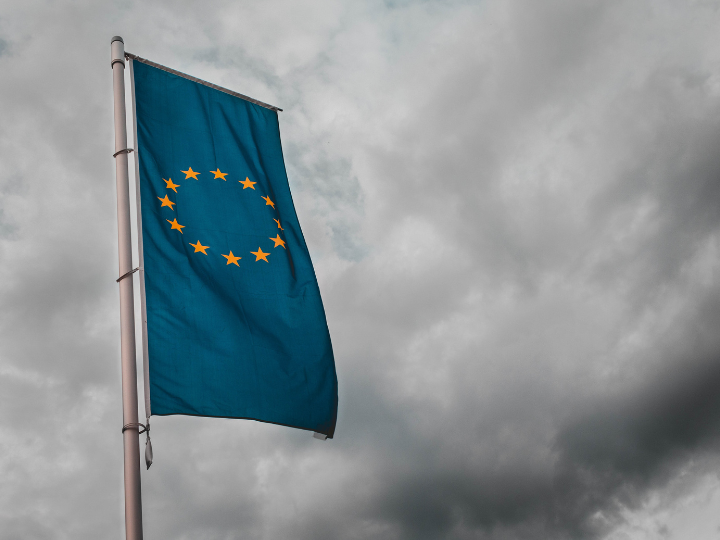by Alexandra Brzozowski and Aurelie Pugnet
EU leaders on Thursday (26 October) are expected to call for a ‘humanitarian pause’ in fighting between Israel and Hamas, but the bloc remains divided over the exact wording.
After days of negotiations, the latest summit draft communique expects EU leaders to call “for continued, rapid, safe and unhindered humanitarian access and aid to reach those in need through all necessary measures including a humanitarian pause”.
Wording of the summit text, according to EU diplomats, could still change when leaders meet in Brussels and could be wary between “humanitarian pause” or “pauses” in the plural.
However, it is expected to fall short of demands from the UN for a “ceasefire”.
While over the past weeks, there has been strong condemnation of the Hamas attack on Israel, there has been less consensus on urging any halt to Israel’s retaliatory bombardment of Gaza.
EU foreign ministers earlier this week on Monday (23 October) edged towards endorsing a “humanitarian pause” in the Israel-Hamas war, though some member states have signalled reservations towards the idea.
EU members, including France, Spain, the Netherlands, Ireland, Slovenia and Luxembourg, have also backed the idea.
Spain’s acting Prime Minister Pedro Sanchez, on Wednesday (25 October), in a very direct manner, called for a “halt and humanitarian cease-fire” to allow for the “urgent introduction of humanitarian aid in Gaza in a manner that is systematic, permanent, and proportionate to the extraordinary needs of the Palestinian people.”
Hesitant member states had expressed concerns that calls for a stop in fighting would stand in contradiction with emphasising Israel’s right to defend itself.
“We have to find a formula which finds the middle way between those pleading for an outright humanitarian cease-fire, which is a general stop in the fighting activities, and some others who think that for instance Israel is still entitled to defend itself from the attacks and it is too early to speak of a ceasefire,” one EU diplomat said.
The second camp, led by Germany, and including Austria and the Czech Republic, is wary of urging a more definitive halt that could tie Israel’s hands and has mooted calls for humanitarian “windows” or “pauses” in the plural.
“If we call on a cease-fire, and Hamas will continue to throw rockets, we won’t be able to tell Israel cannot defend themselves” leaving the Europeans facing a moral dilemma, a second EU diplomat said.
This way, the Israelis would automatically break the cease-fire and so would the Europeans in supporting Israel’s self-defence rights, they added.
“Letters, commas, language matter, and that’s how you find agreements,” a senior EU official said about the negotiations. All EU member states have to agree to the text.
“From our perspective, what matters is humanitarian access, so we can help those in need, whether in Israel or Gaza,” they said.
“Pause, or pauses? (…) Words matter as long as they help us to reach our objectives,” they added.
More headaches for a response were added by Israel Prime Minister Benjamin Netanyahu announcing on Wednesday night he was “preparing a ground invasion” of the Gaza Strip, which could make a pause in fighting more difficult.
Beyond the question of a joint EU position on a halt in fighting, some EU diplomats have started warning that fighting over the right wording as the death toll mounts is risking exposing the bloc’s credibility as a foreign policy actor.
The debate comes as the bloc seeks to overcome confusion over its initial response to the conflict.
Contrary to the EU’s response to Russia’s war on Ukraine, there is a less homogenous line, with member states traditionally split between mostly more pro-Palestinian members such as Ireland and Spain, and staunch backers of Israel including Germany and Austria.
“We shouldn’t assume that there will be a uniformity of perception on this question: we all have different histories, and relationships with the region, so we have different perceptions, cultures, reactions”, the second diplomat said.
“But that doesn’t mean we [as member states] can’t act together and be useful,” they added.
It also remains to be seen what impact the EU leaders’ call will have on the ground, after years of disengagement with the region and complicated relationships which lessened the EU’s voice and influence in the region, EU diplomats say.
“The major dynamic forces in the world, such as the EU, the US, China, Russia, the Quartet, have somewhat neglected the Middle East Peace process in recent years,” a third EU diplomat said.
Before the recent escalation, thirty years after being signed in 1993, the Oslo Peace Accords, intended as a temporary measure to build confidence and create space for a permanent peace agreement, had frozen into a system for managing a conflict with no apparent end in sight.
Some hope was given by almost 50 representatives from Europe and the Middle East who had gathered on the sidelines of the United Nations General Assembly in September to unveil a new EU-brokered initiative, dubbed the ‘Peace Day Effort’, which aims to revive the long-dormant peace process between Israel and Palestine.
However, the next meeting, initially planned for November in Belgium, had been postponed due to the unstable situation in the region.
*first published in: Euractiv.com




 By: N. Peter Kramer
By: N. Peter Kramer

